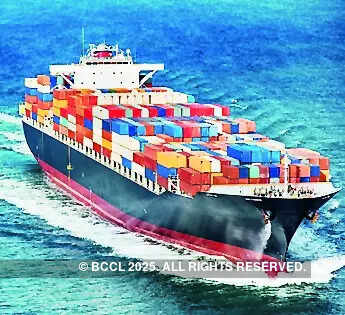
New Delhi: With escalating everyday attacks and no end in sight, the Red Sea crisis will adversely impact trade volumes in substantial ways in 2024, according to the report of economic think tank GTRI.
The Global Trade Research Initiative (GTRI) said that rising shipping, and insurance costs and delayed arrival of shipments will continue to disrupt global value chains, squeeze margins, and make exports of many low-margin products unviable from current locations.
Countries in Asia, Africa, and Europe will face the most disruption across industries, it added.
It said that the disruption is significantly impacting Indian trade, especially with the Middle East, Africa, and Europe. India, heavily reliant on the Bab-el-Mandeb Strait for crude oil and LNG imports and trade with key regions, faces substantial economic and security risks from any disruption in this area.
About 65% of India’s crude oil imports in FY2023, valued at USD 105 billion, from countries like Iraq, Saudi Arabia, and others, likely passed through the Suez Canal.
For overall merchandise trade with Europe and North Africa, about 50% of imports and 60% of exports, totalling USD 113 billion, might have used this route, it said.
“With escalating everyday attacks and no end in sight, the Red Sea crisis will adversely impact trade volumes in substantial ways in 2024,” the report noted.
This conflict is leading to increased shipping costs (40-60%) and delays due to rerouting (upto 20 days more), higher insurance premiums (15-20%), and potential cargo loss from piracy and attacks, it said.
“Confectionery companies are hit by high cocoa prices and shortages due to late deliveries from Africa, reducing profits. Textile and leather industries, which operate on thin margins, are renegotiating shipping costs with buyers, impacting earnings. Car manufacturers are using different shipping paths to avoid delays,” GTRI Founder Ajay Srivastav said.
The Red Sea crisis began in a major way on October 19, 2023, when the Iran-backed Houthi movement in Yemen launched attacks on civilian-operated cargo ships near the Yemeni coast.
The Houthis have targeted any shipping believed to be connected to Israel, though several vessels attacked had no apparent link to the country.
According to the report, this situation is part of a broader proxy conflict involving the United States and Iran, Hamas and Israel. In March 2024, the crisis was in its fifth month.
It suggested the government to diversify its sources of crude oil and LNG, explore alternative trade routes to reduce dependency on the conflict-prone Red Sea passage; and rely on ports outside conflict zones, like Oman and Djibouti, for transshipment and regional trade.
It also asked for offering financial support and insurance schemes to Indian companies affected by trade disruptions.
It added that the crisis underscores how geopolitical conflicts can swiftly destabilise global shipping routes, leading to increased shipping costs and significant delays across multiple sectors and regions.
‘”The crisis also underscores the importance of exploring alternative maritime and land-based trade routes. This includes potential investment in the Northern Sea Route and expanded land transport infrastructure.
India-Middle East-Europe Economic Corridor (IMEC) becomes important in this context,” Srivastava said.
IMEC project aims to create a vast economic corridor connecting Europe, the Middle East, and Asia through improved transportation, communication networks, and energy infrastructure.
It comprises rail, road, and sea routes across two main corridors: The East Corridor links India to the Arabian Gulf. The Northern Corridor connects the Gulf to Europe.

